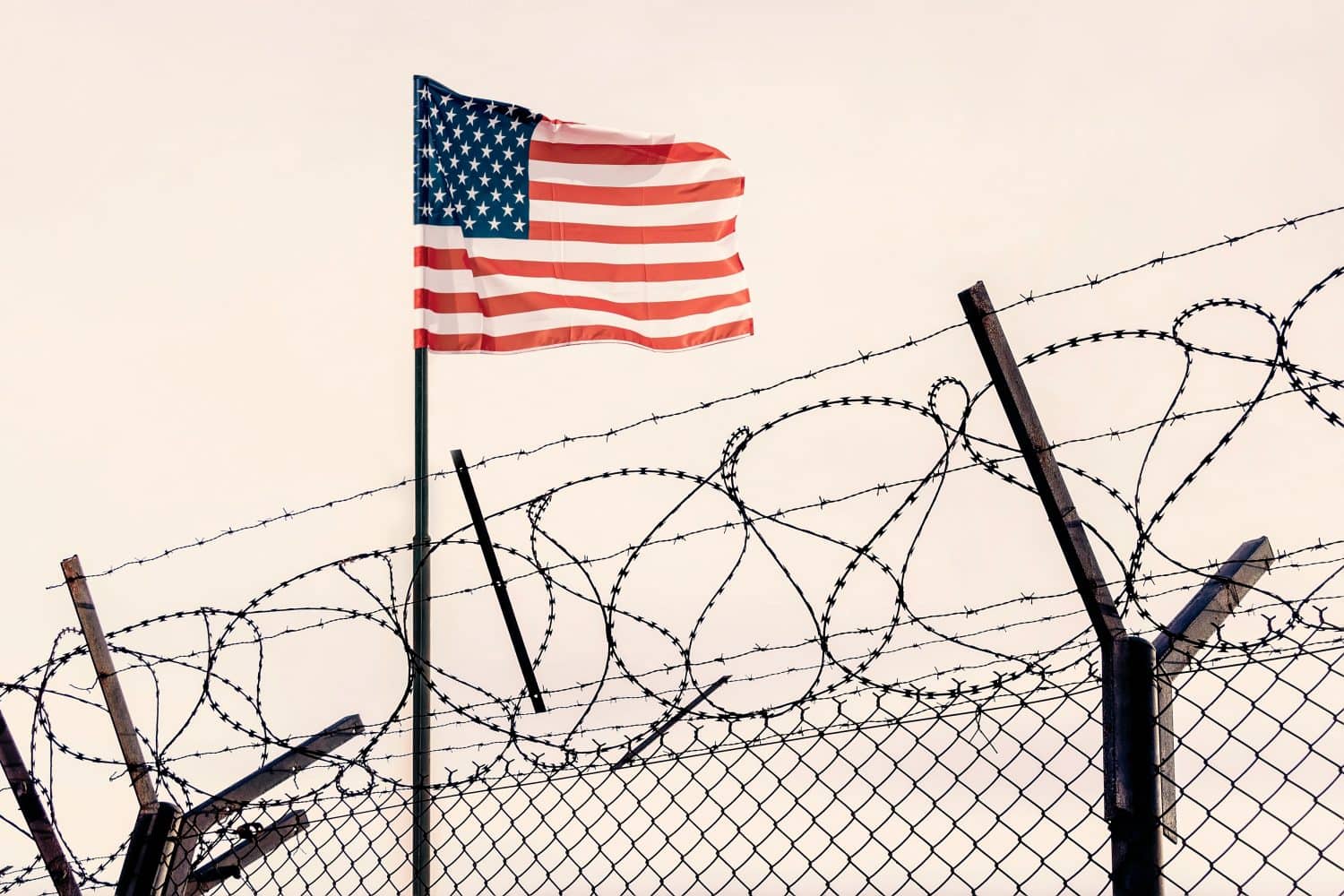
24/7 Insights
- High incarceration rates do not correlate with drops in crime or safe cities.
- High incarceration is usually tied to oppressive ideologies or corruption.
- Download our free report on the two stocks we recommend every investor buy.
Generally, there are two primary reasons why a country would want to incarcerate vast numbers of people: economic and ideological.
For the economic reasons, you might notice that many of the countries on this list are popular tourism destinations that base the vast majority of their economy on the tourism industry. Tourism destinations are heavily incentivized to keep their tourist hot spots safe and clean so they don’t frighten wealthy Western customers away. This would be the case with St. Vincent, Palau, the Virgin Islands, Seychelles, and others on this list.
For the ideological reason, this would primarily involve countries with oppressive or orthodox religious cultures, authoritarian cultural ideologies, and strong police states that want to crack down on dissent or all of the above. Of the countries on this list, this would most strongly apply to Turkey, Turkmenistan, and the United States.
It is important to remember that these are the incarceration rates per country, not the total number of prisoners. If comparing the total number of prisoners, the United States takes the top spot by a long shot with 1.8 million prisoners, barely beating China which has a total population more than four times that of the United States.
Also, some territories are listed separately from their sovereign nations. In this case, the United States takes three of the top ten positions with American Samoa and Guam also having high incarceration rates. If these territories were included in the U.S. total, its placement on this list would increase.
The rates in this list are per 100,000 people.
#20 St. Vincent and the Grenadines
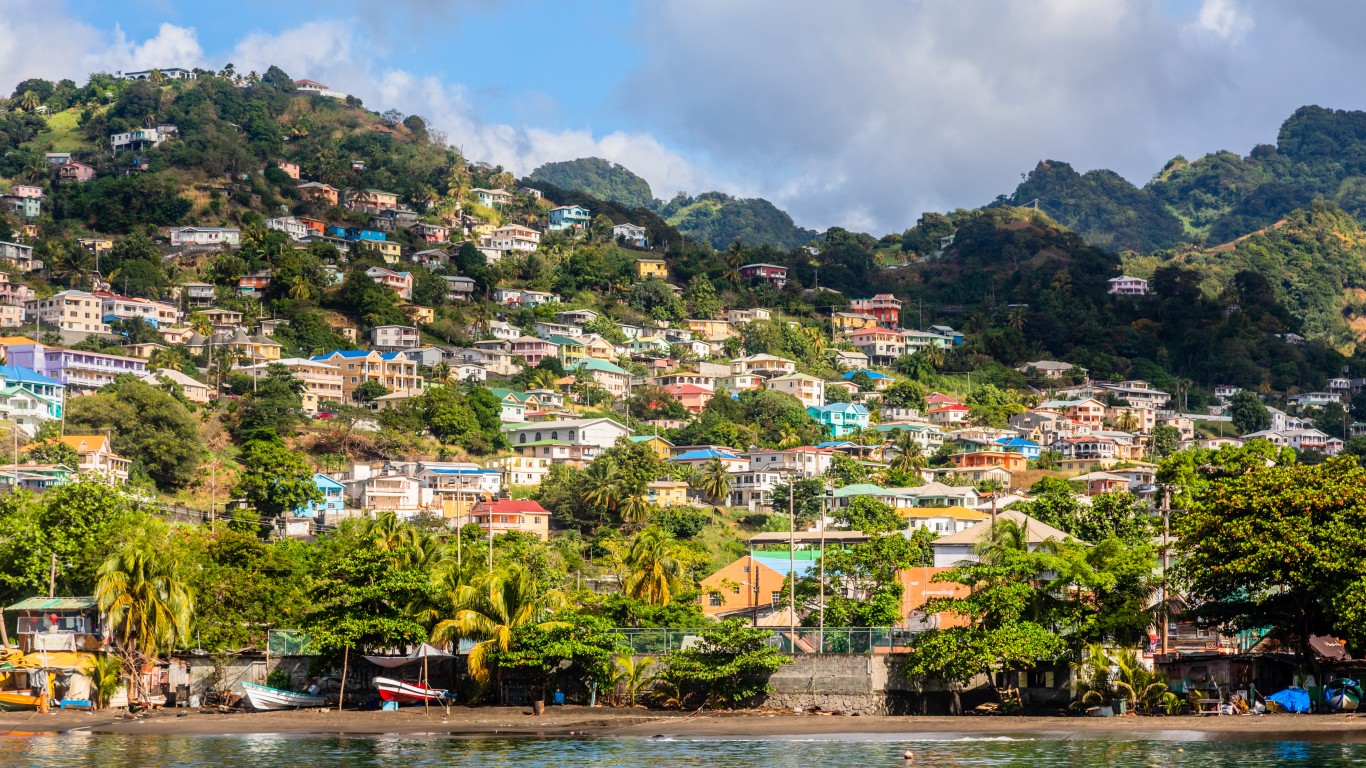
- Incarceration rate: 353
- Total prisoners: 392
As an overwhelmingly Christian nation, LGBT and homosexual activity are illegal in Saint Vincent and the Grenadines. Its economy is largely based on banana production and tourism which still has huge potential for development. It has a high unemployment rate of over 19% which also contributes to crime levels.
#19 Cape Verde
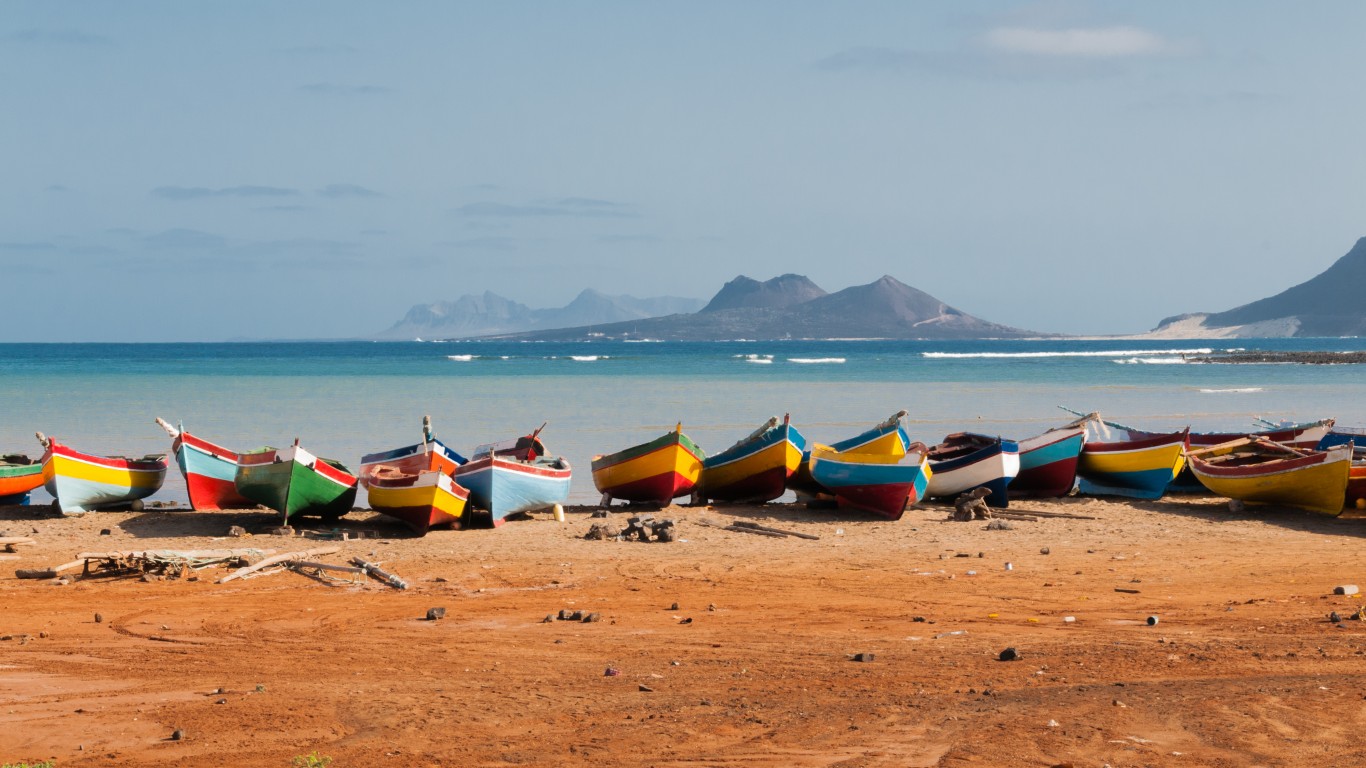
- Incarceration rate: 366
- Total prisoners: 2,100
Most of the instances of theft and burglary in Cape Verde are committed by gangs of street children. Also, because of its strategic location between Africa and the Americas, Cape Verde is a popular transit sight for drug traffickers and child traffickers, with cocaine and cannabis being the most popular products passing through the country.
#18 Palau
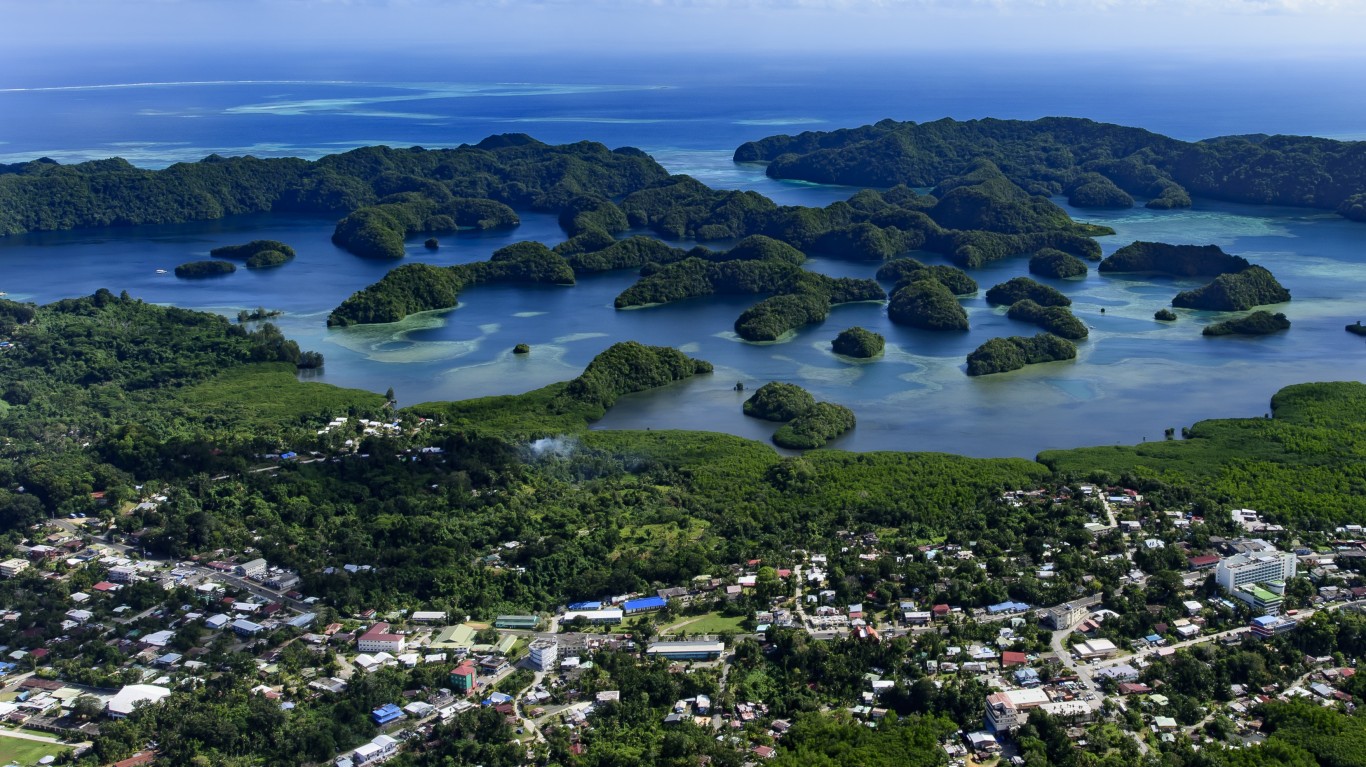
- Incarceration rate: 367
- Total prisoners: 66
Despite being a foreign nation, American (particularly the United States) influence has been particularly strong in the country, to the point that other nations don’t quite see the small island nation as a fully independent state. It uses the U.S. dollar and English is one of its two national languages. Tourism is a major industry in Palau that is still dependent on foreign aid to survive.
#17 Virgin Islands (United Kingdom)
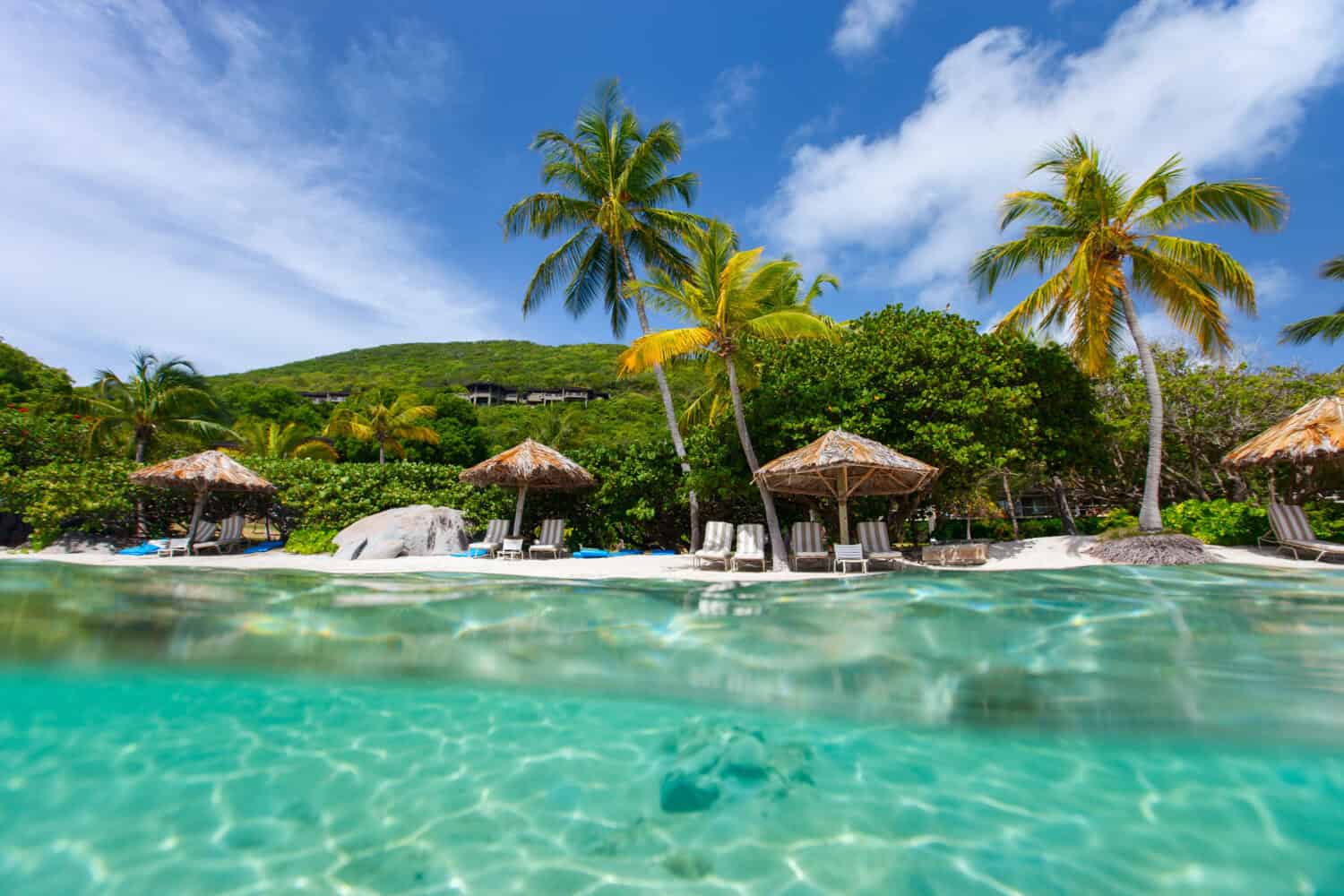
- Incarceration rate: 368
- Total prisoners: 114
As a major exploitative tourist spot, the Virgin Islands are extremely dependent on migrant labor, with migrants accounting for 50% of the population of the country. It also suffers from higher income inequality than many other regions. In fact, income inequality is significantly higher in the Caribbean overall than in all other regions. Homicides are rare in the Virgin Islands and crime is relatively low compared to other Caribbean nations, but it remains a hub for drug trafficking.
#16 Thailand
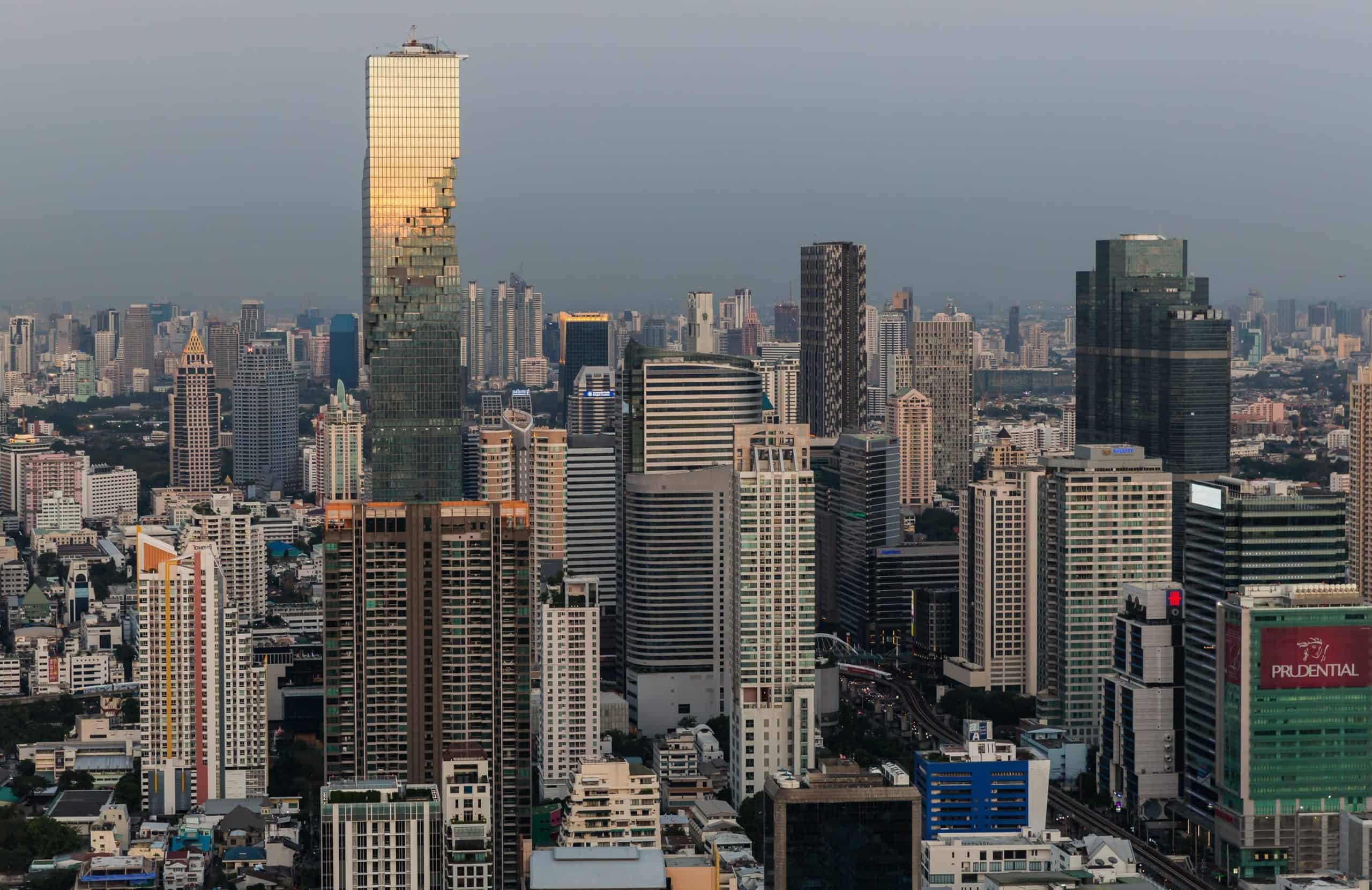
- Incarceration rate: 391
- Total prisoners: 274,277
Thailand has fluctuated between democracy and military dictatorships, with the military still maintaining significant power over the government.
Around 62% of the working population is involved in the informal economy which is composed of entertainment, sex work, human trafficking, sexual exploitation, and nightlife industries.
In 2014, Thailand ranked 3rd for income inequality, with the top 1% richest people owning 58% of the wealth. Today, Thailand continues to struggle with high amounts of household debt, slow economic growth, poor education rates, and more. All factors that contribute to crime.
#15 Brazil
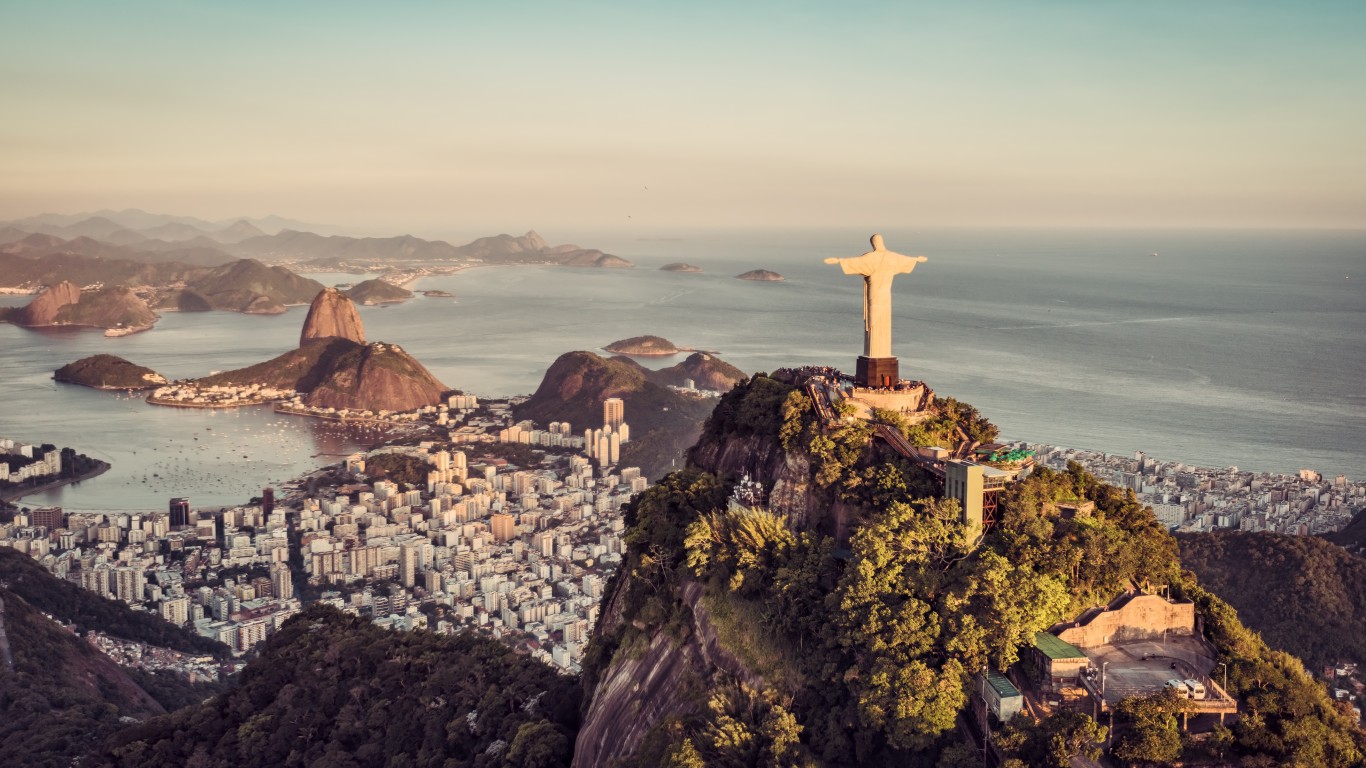
- Incarceration rate: 392
- Total prisoners: 850,377
Corruption is rampant and deeply rooted in Brazil. It also has very high levels of gun violence and homicides, with one of the highest homicide rates in the world. At one point, Brazil’s prison system was at capacity and could not fit an additional 200,000 prisoners who had been sentenced.
Brazil’s police force includes military police prone to corruption and bribery, leading to the oppression of people who do not comply with police demands. Prisoners and detainees are regularly abused and tortured by police and prison workers, police do not protect witnesses adequately, and other issues lay a foundation for rampant crime and corruption.
#14 Seychelles
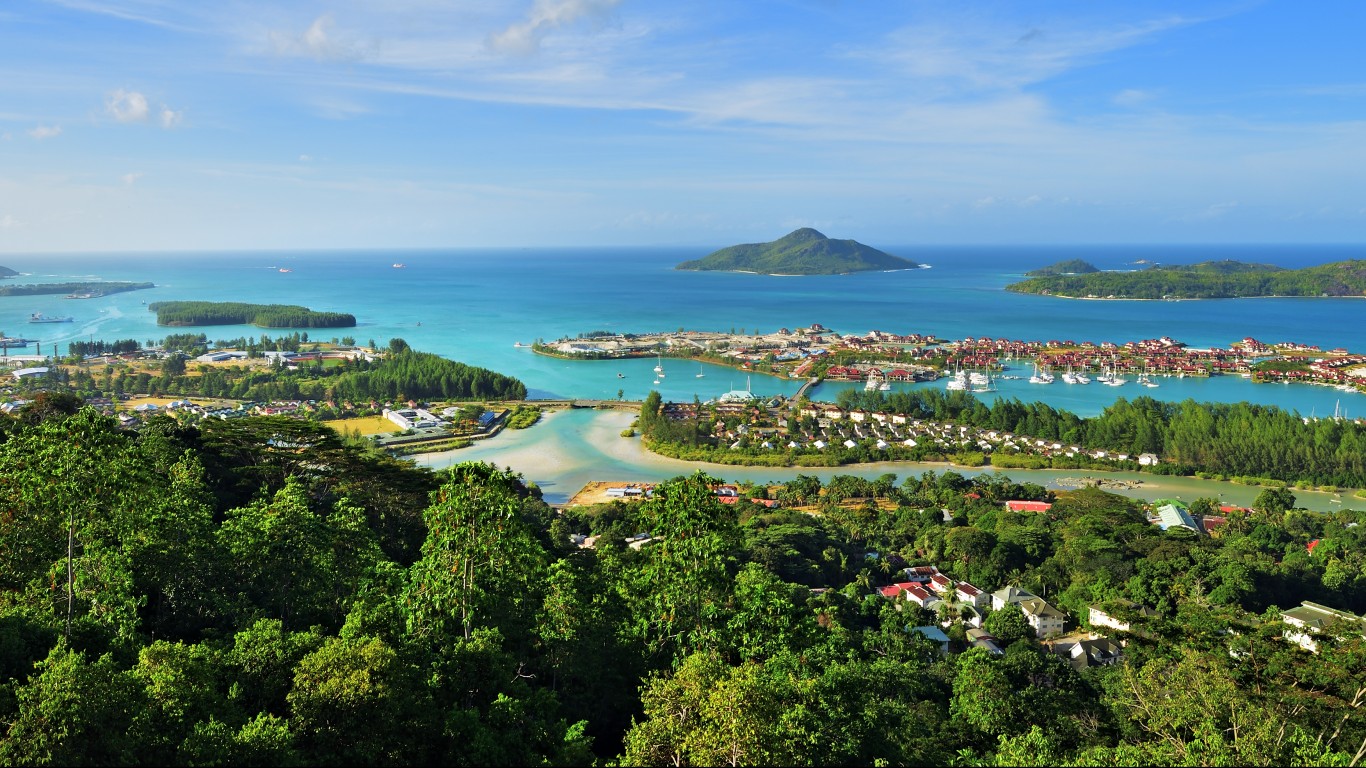
- Incarceration rate: 393
- Total prisoners: 474
Seychelles used to have the highest incarceration rate in the world, so it is good to see progress is being made. Most of the drop in its incarceration rate is due to population growth. Its main crime concern has to do with Ocean piracy.
#13 Antigua and Barbuda
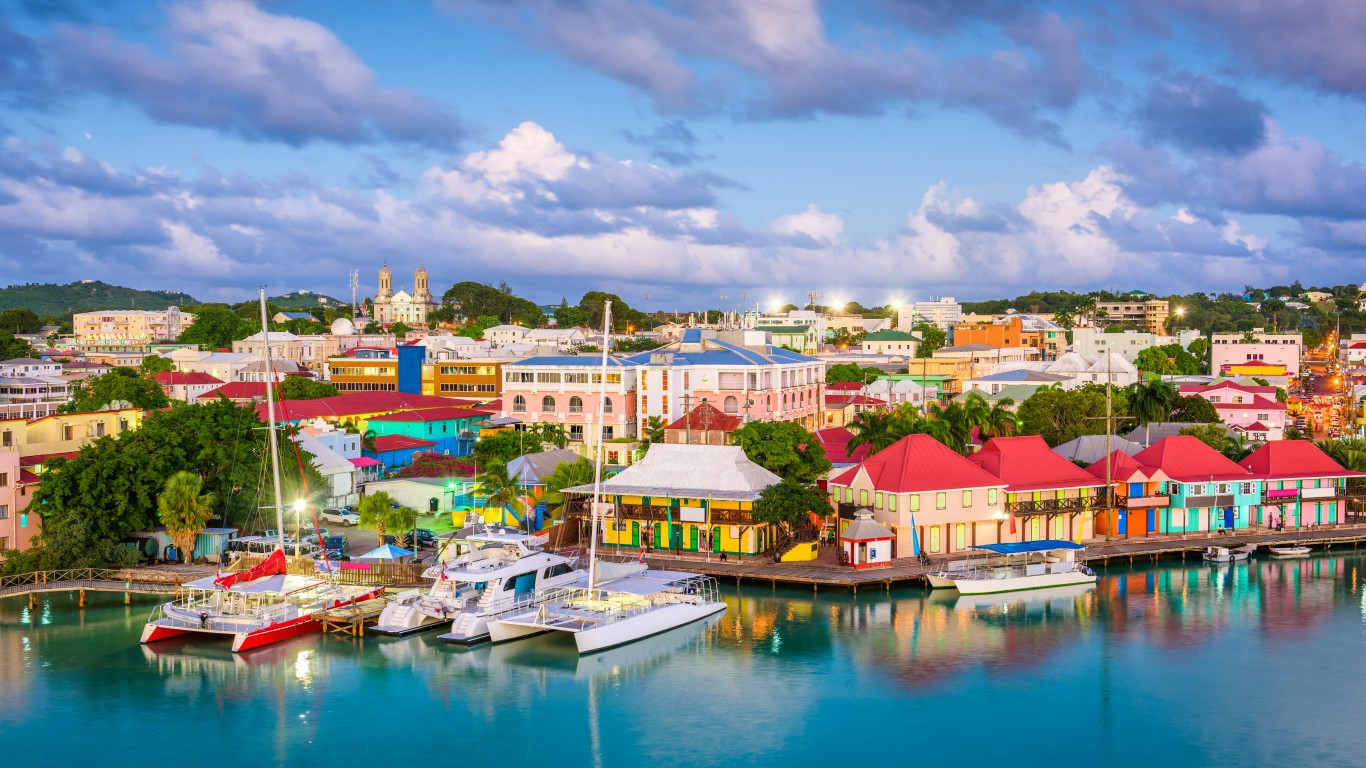
- Incarceration rate: 400
- Total prisoners: 400
Tourism accounts for 80% of the GDP of Antigua and Barbuda. Naturally, due to its low population and reliance on tourism, a low number of prisoners still leads to a high incarceration rate.
#12 The Bahamas
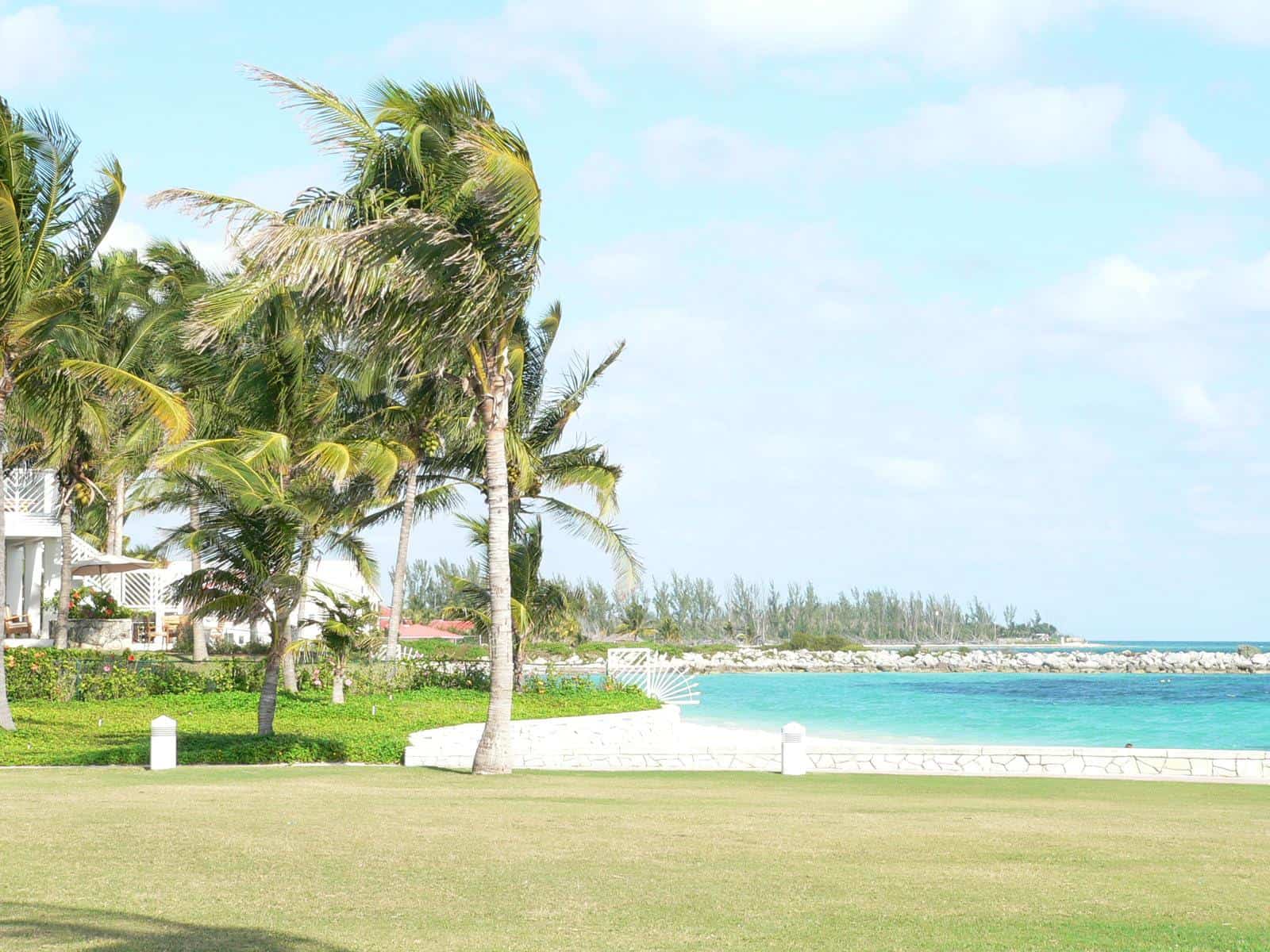
- Incarceration rate: 409
- Total prisoners: 1,617
Tourism accounts for 70% of the GDP of the Bahamas and employs over 50% of the people in the country. The vast majority of tourists visiting the nation are cruise line customers. With a small population and a huge incentive to stay a safe and attractive tourist destination, incarceration rates remain high.
#11 Turkey
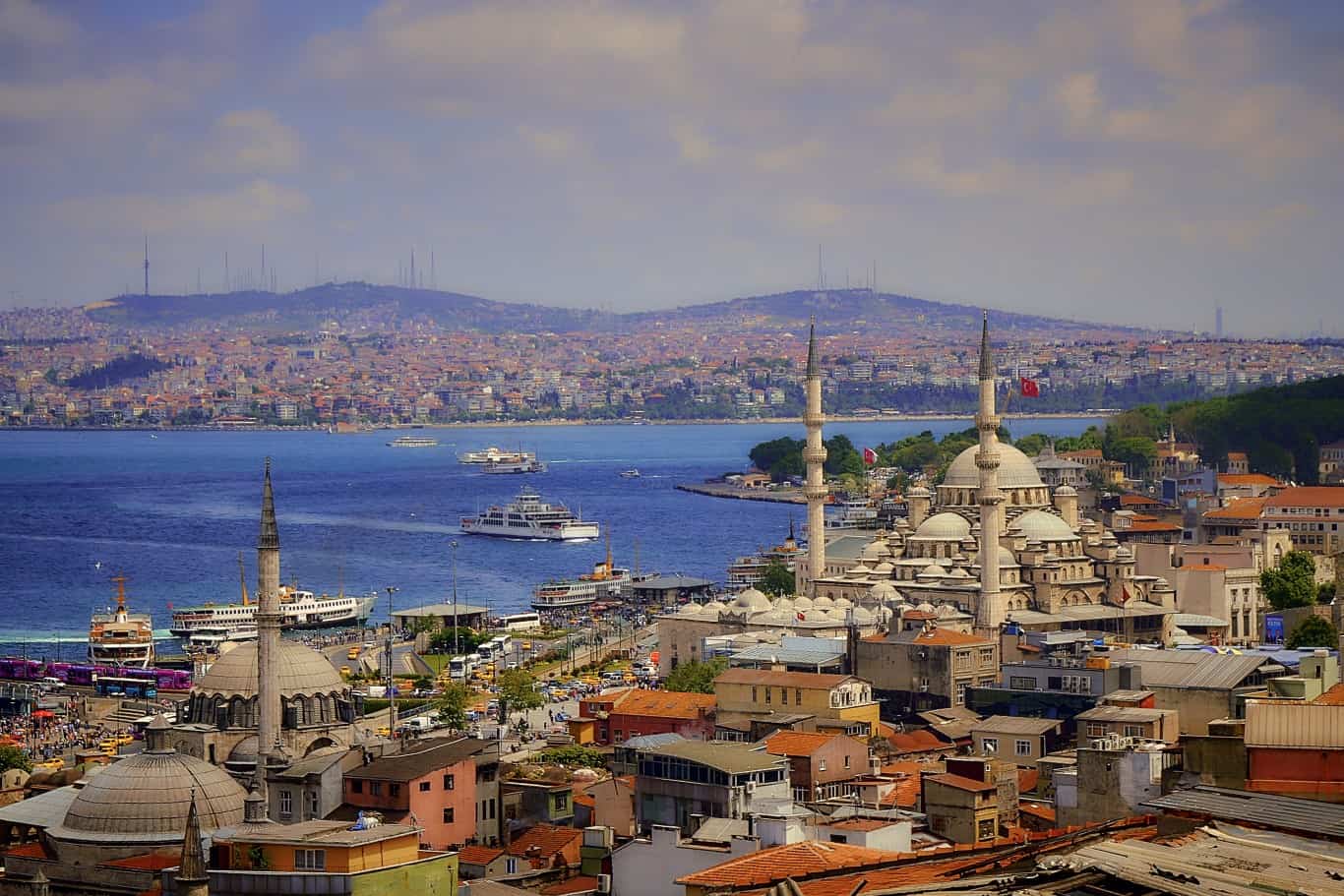
- Incarceration rate: 424
- Total prisoners: 362,422
Turkey held its first direct presidential election in 2014, and the new president Erdoğan quickly abolished the office of the prime minister and transferred all its powers and responsibilities to himself. As a result, Turkey has seen a dramatic backsliding from democracy to authoritarianism and oppression. It has received criticism for oppressing and interfering with journalists, media, and law enforcement to intimidate opponents and silence critics. The government uses its power to imprison media, LGBT members, women, and Kurdish people primarily.
#10 Uruguay
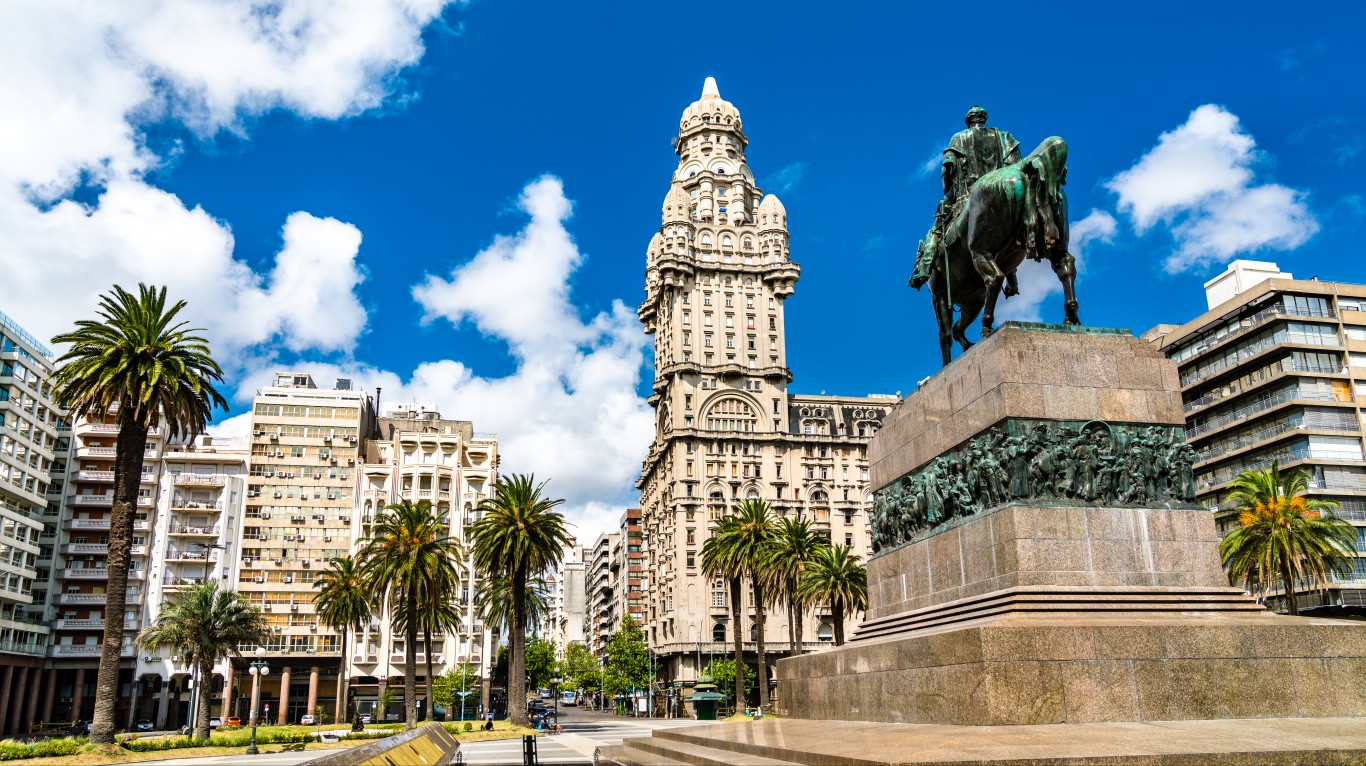
- Incarceration rate: 449
- Total prisoners: 15,767
While crime is relatively low and the institutions of democracy have been praised in Uruguay, the prison system in Uruguay reached 125% capacity in 2013 and prisoners were subjected to inhumane conditions that were called human rights atrocities. All these issues were blamed on a flawed system of criminal justice that led to the mixing of pre-trial detainees with the rest of the convicted prisoners, and 68% of all prisoners are still awaiting trial.
#9 Guam (USA)
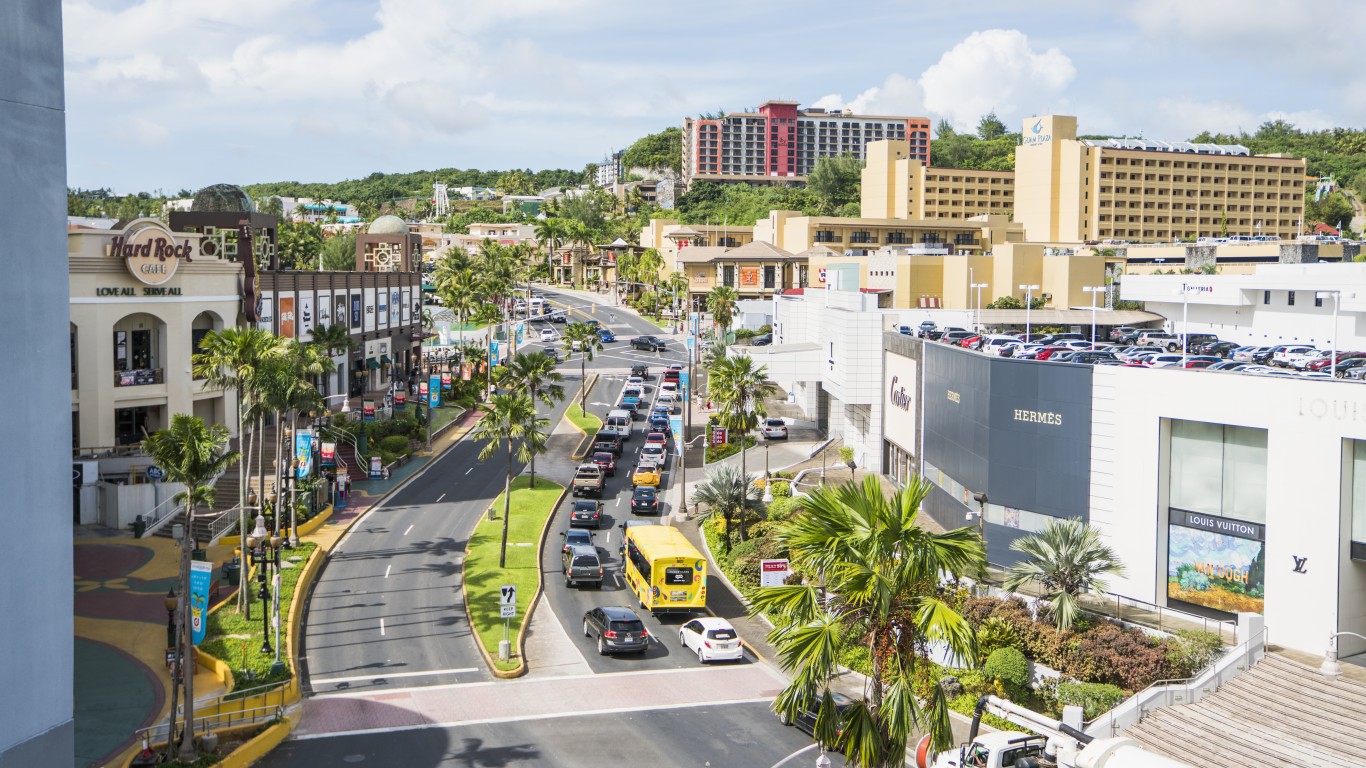
- Incarceration rate: 475
- Total prisoners: 820
Guam depends primarily on tourists to support its economy. Most of the tourists come from Asia, especially Japan, and most of its money is made in American-style shopping malls and duty-free designer shops.
#8 Tonga
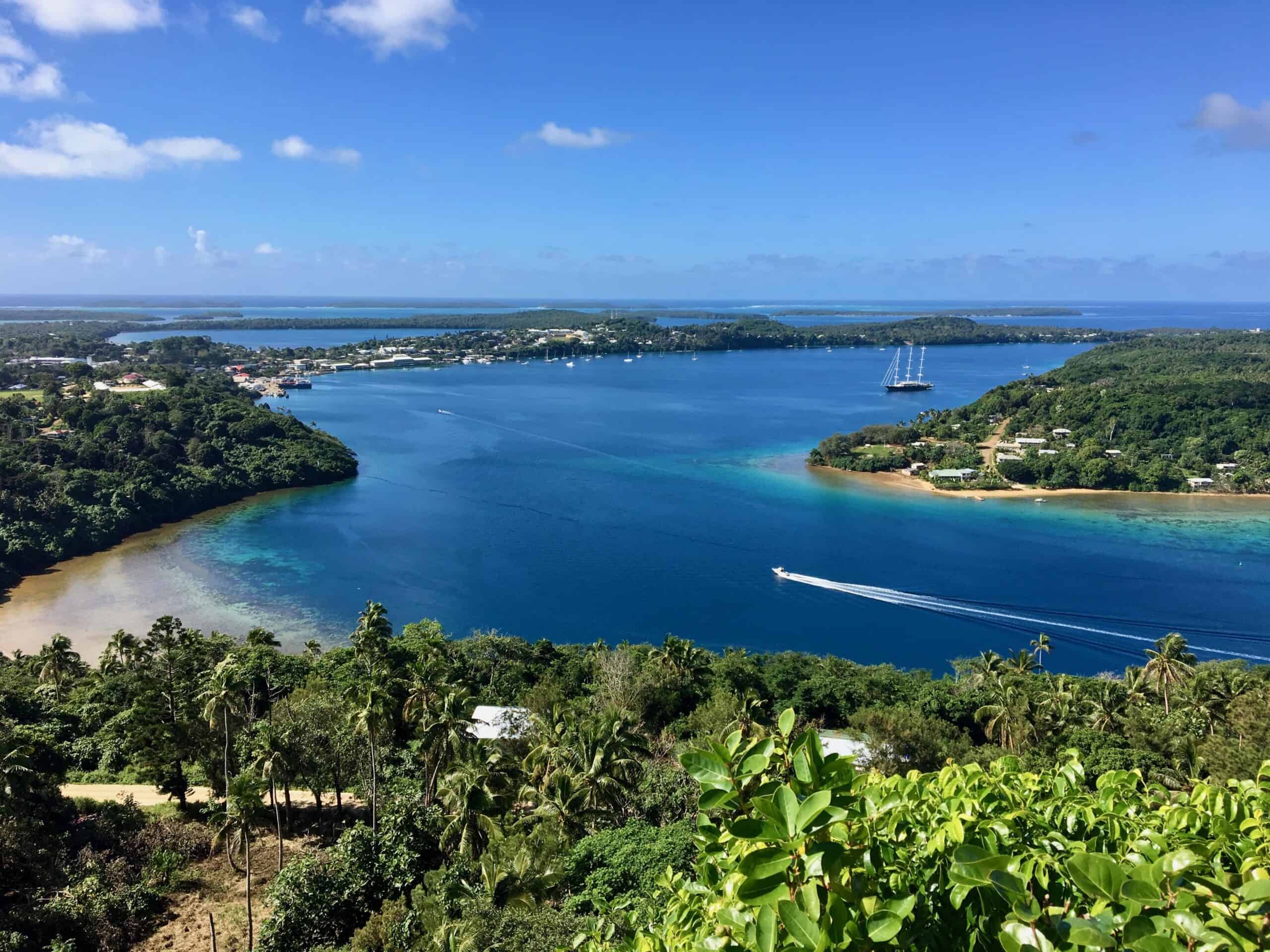
- Incarceration rate: 516
- Total prisoners: 557
Tonga was ranked as the 6th most corrupt country in the world, with the royal family owning almost the entirety of the monetary sector of the country’s industry. Much of the recent history of Tonga has been filled with conflict between the monarchy and pro-democracy advocates, even resulting in the destruction of 60% of the downtown area of Tonga’s capital during pro-democracy riots.
#7 Panama
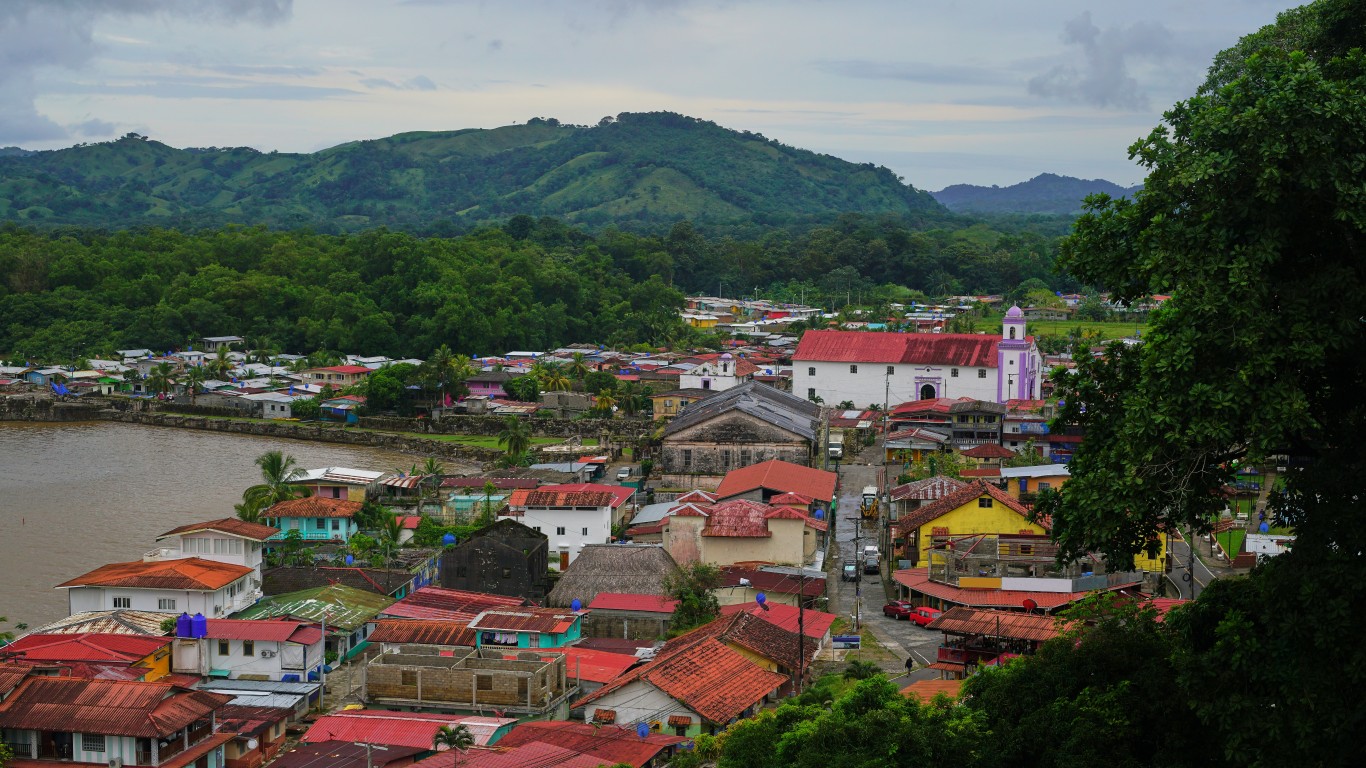
- Incarceration rate: 522
- Total prisoners: 23,798
Panama’s economy is largely dependent on the Panama Canal, tourism, and finance. It suffers from high levels of corruption but is one of the most peaceful countries in the world. After the United States violated international law and invaded Panama in 1989, the U.S. has maintained significant influence and power over the country ever since.
#6 American Samoa (USA)
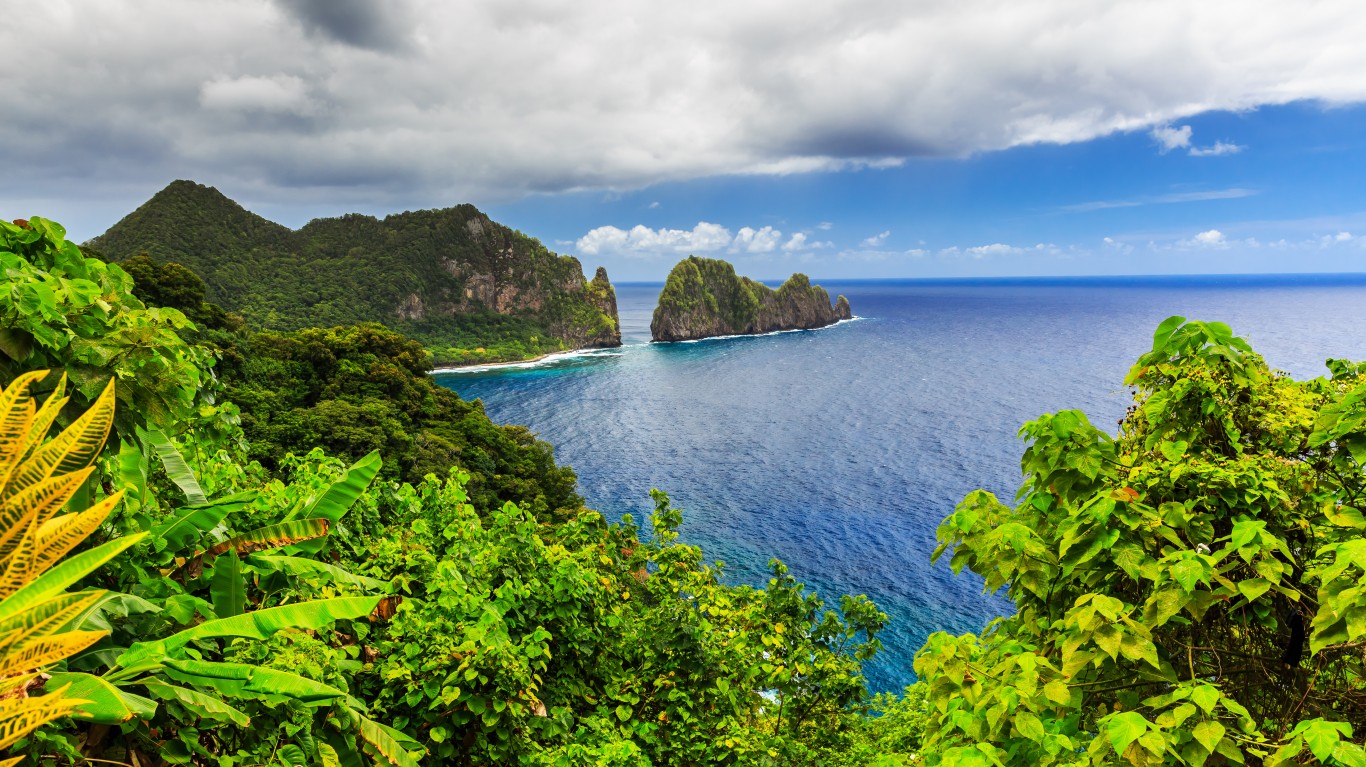
- Incarceration rate: 538
- Total prisoners: 301
American Samoa has the highest rate of military enlistment in the U.S. forces of any other state or territory in the United States. Despite this, the people of Samoa are heavily disenfranchised with no voting power in the United States and it is the only permanent territory of the U.S. in which people are not given citizenship at birth.
Samoa has struggled with high unemployment for decades. In 2007, it passed the Fair Minimum Wage Act which slowly raised the minimum wage in Samoa by a whopping 50 cents every year until it reached the federal minimum of $7.25. In response, Chicken of the Sea shut down its canning plan, firing over 2,041 employees, and Starkist laid off around 800 workers. Both companies were among the largest employers in Samoa and these actions dramatically impacted poverty and unemployment. The Samoan Governor asked that instead of firing employees the companies reduce the wages of high-paid executives or reduce bonuses of top-tier employees. The companies refused.
#5 United States of America
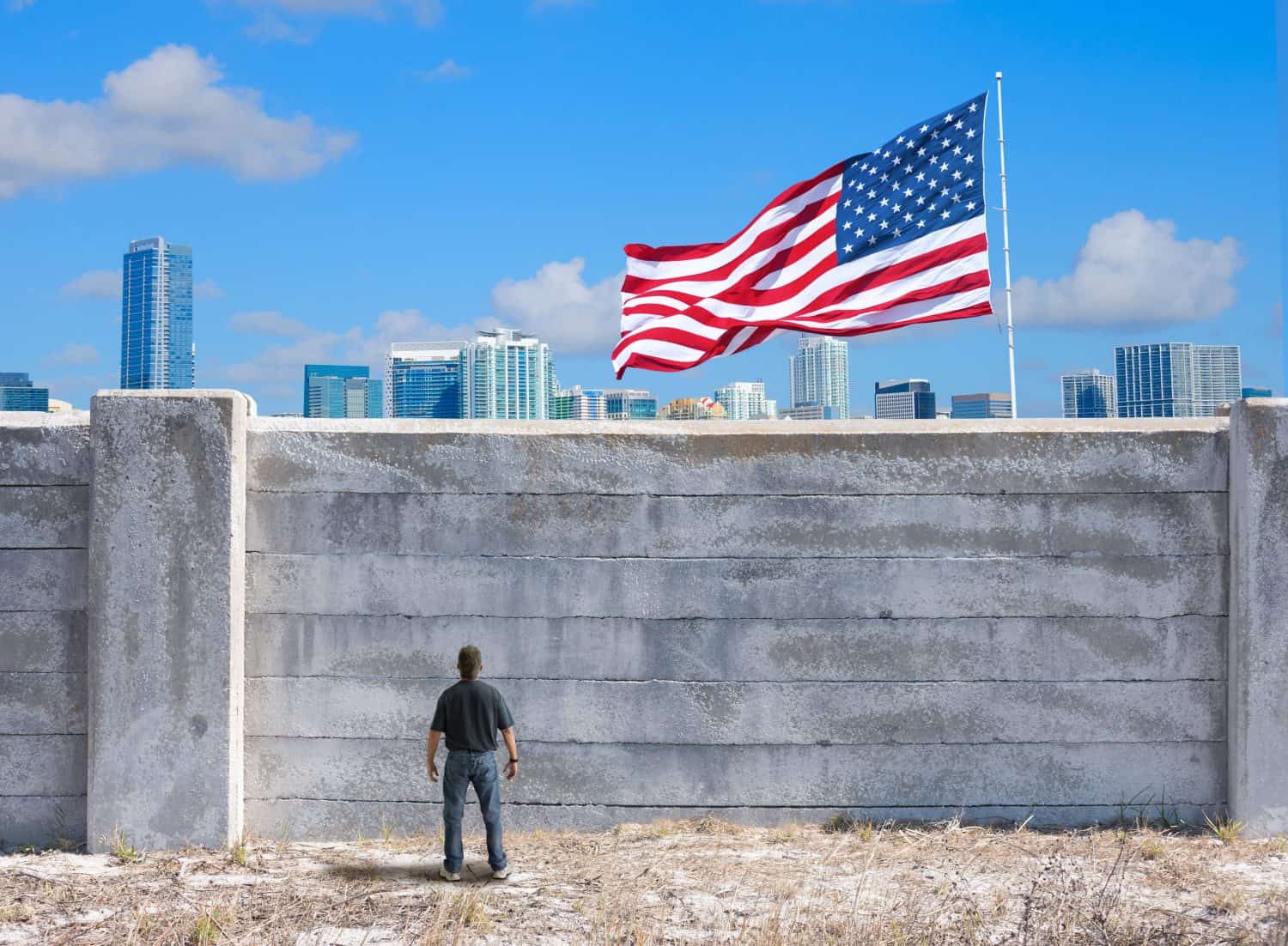
- Incarceration rate: 541
- Total prisoners: 1,808,100
The United States has 5% of the world’s population but has 20% of the world’s prisoners. Land of the free indeed! The entire cost of running America’s prison system exceeds $119 billion every year.
The primary reasons for the explosion and drastic increase in America’s incarceration rate are Richard Nixon’s initiation of the “War on Drugs” and Ronald Reagan’s Comprehensive Crime Control Act which implemented mandatory minimum prison sentences. Imprisonment of non-violent people skyrocketed.
At the same time, the United States began to privatize its prison system in the 1970s, allowing private companies to source and manage federal prisoners. This has led to higher costs, extreme human rights abuses, and corruption within the system. Many prisoners in the United States live in inhumane conditions which have been called human rights atrocities by international critics, and thousands of prisoners who have served their sentence are not released because private prisons can keep them longer to continue to be paid.
Non-violent drug offenses account for one of every five prisoners. Half of all the people in state prisons are there for non-violent offenses. In the United States, black people are more likely to be held in jail without bond, receive prison sentences instead of community service, and receive longer sentences than a white person convicted of the exact same crime.
Even though crime of different types and in many areas has been dropping in the last couple of decades, the prison population in the United States remains high. This includes a dramatic drop in crime during the Biden administration when it reached a 50-year low in 2022.
According to the World Health Organization, homicide rates in the United States are seven times higher than in other high-income nations, primarily driven by a gun homicide rate that is 25 times higher than in other comparable countries.
Debtor’s prisons don’t exist in America, but thousands of people have been or are currently imprisoned because they couldn’t pay court fines, further exacerbating poverty and stress that contributes to crime.
Additionally, even though slavery is technically illegal in the United States, around 18% of the prison population is used for prison labor programs earning less than $1.25 per hour. This has become a massive industry in the country, with many companies taking advantage of an extremely cheap and stable workforce and allowing private prisons to lease (like property) prisoners to other prisons or companies. This has been called a slavery loophole, and in 2022, prison labor produced $11 billion worth of goods but many of the prisoners were not paid at all.
Companies that use prison labor include Costco, Boeing, Koch Industries, Bank of America, Chevron, Nintendo, McDonald’s Starbucks, Microsoft, Victoria’s Secret, Eddie Bauer, Walmart, and more.
#4 Turkmenistan
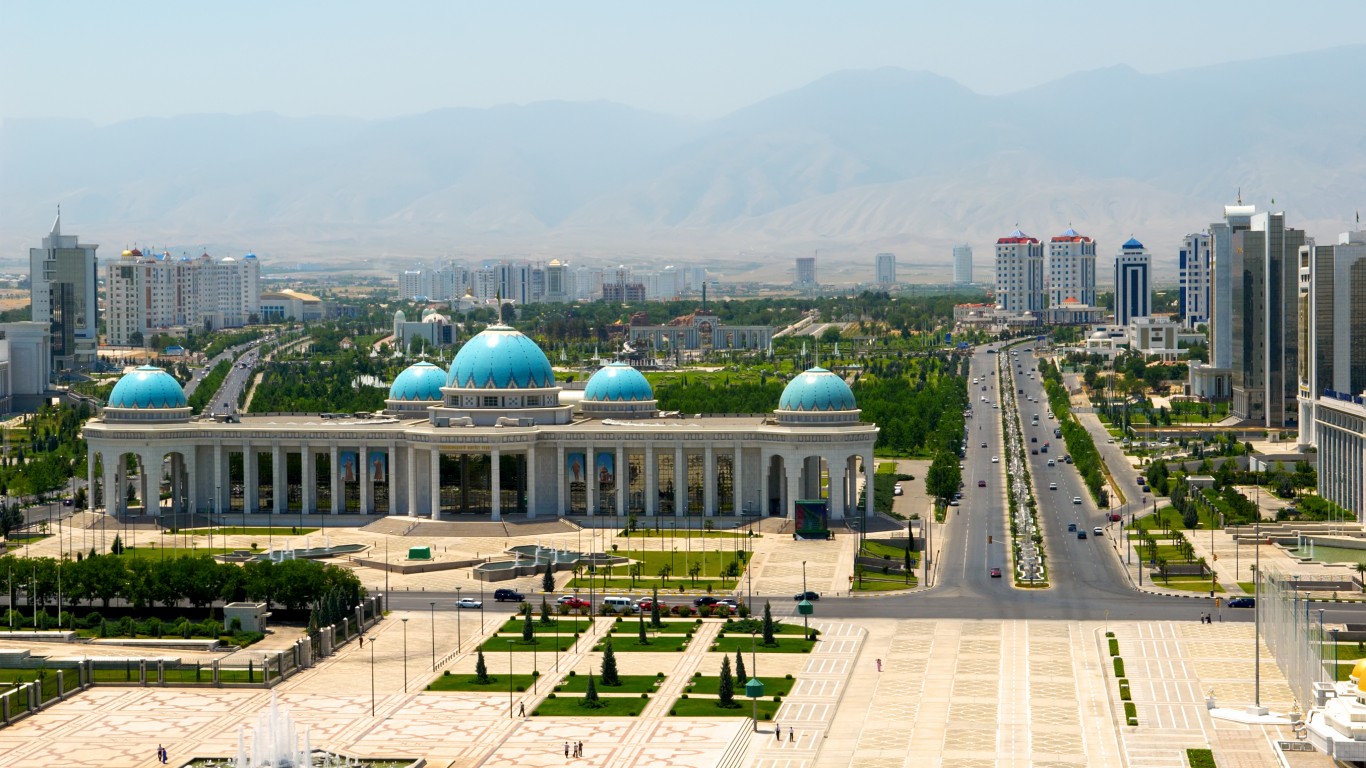
- Incarceration rate: 476
- Total prisoners: 35,000
Turkmenistan has faced repeated criticism over its abuse of human rights. Since 1991, it has been ruled by a strict and powerful dictatorship. Corruption is rampant in Turkmenistan and political dissidents and media critics are regularly imprisoned or intimidated.
#3 Rwanda
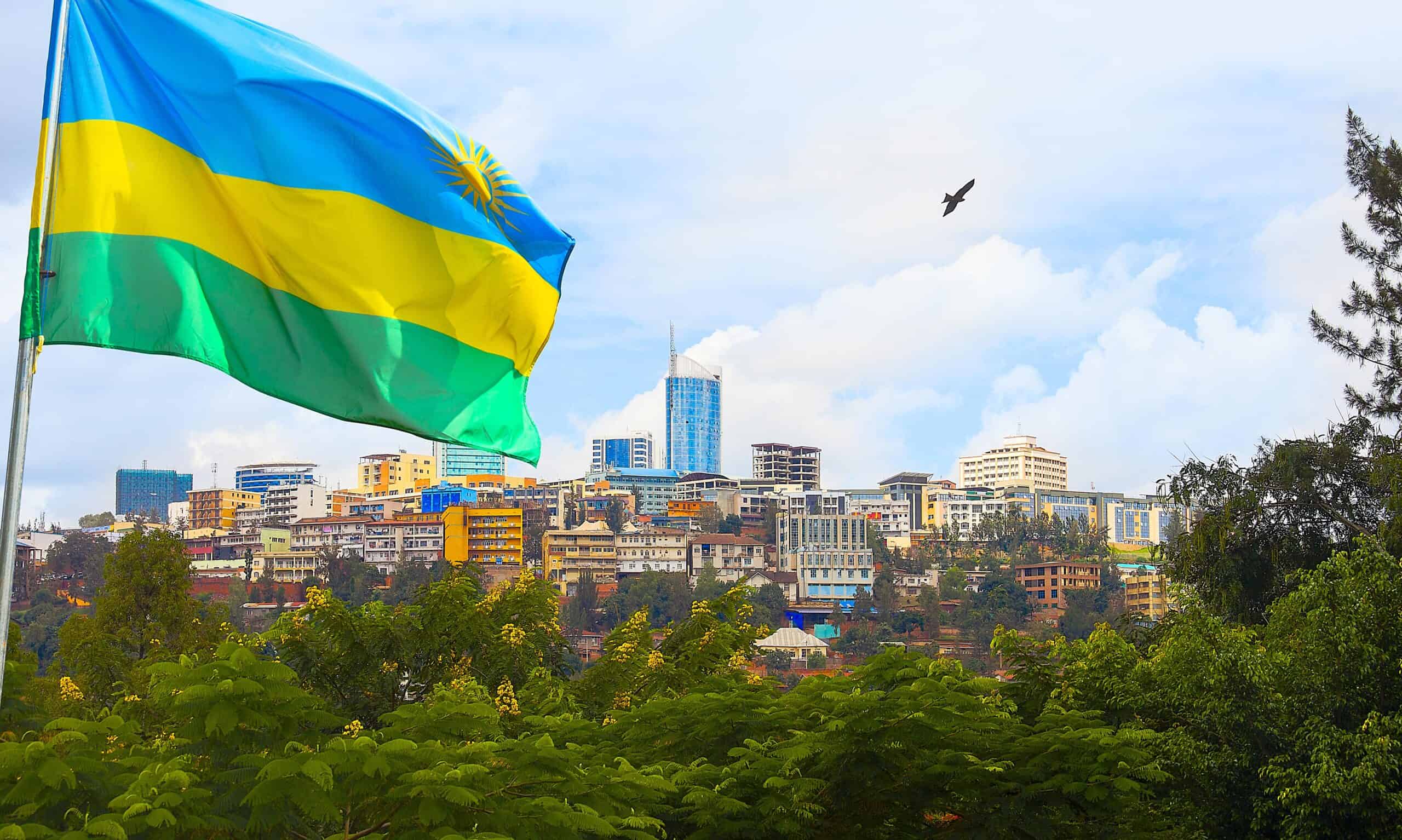
- Incarceration rate: 637
- Total prisoners: 89,034
Almost half the population of Rwanda lives in poverty, with another 22% at risk of becoming impoverished. Rwanda is a one-party state that holds manipulated and farced elections in order to stay in power. Rwandan police regularly arrest sex workers, street vendors, children, the homeless, and beggars. It also arrests opposition party members and critics of the government.
#2 Cuba

- Incarceration rate: 794
- Total prisoners: 90,000
Cuba’s authoritarian government does not tolerate political opposition and independent journalists are often imprisoned. Over 88% of the country lives in extreme poverty. There are also significant numbers of political prisoners in Cuba.
#1 El Salvador
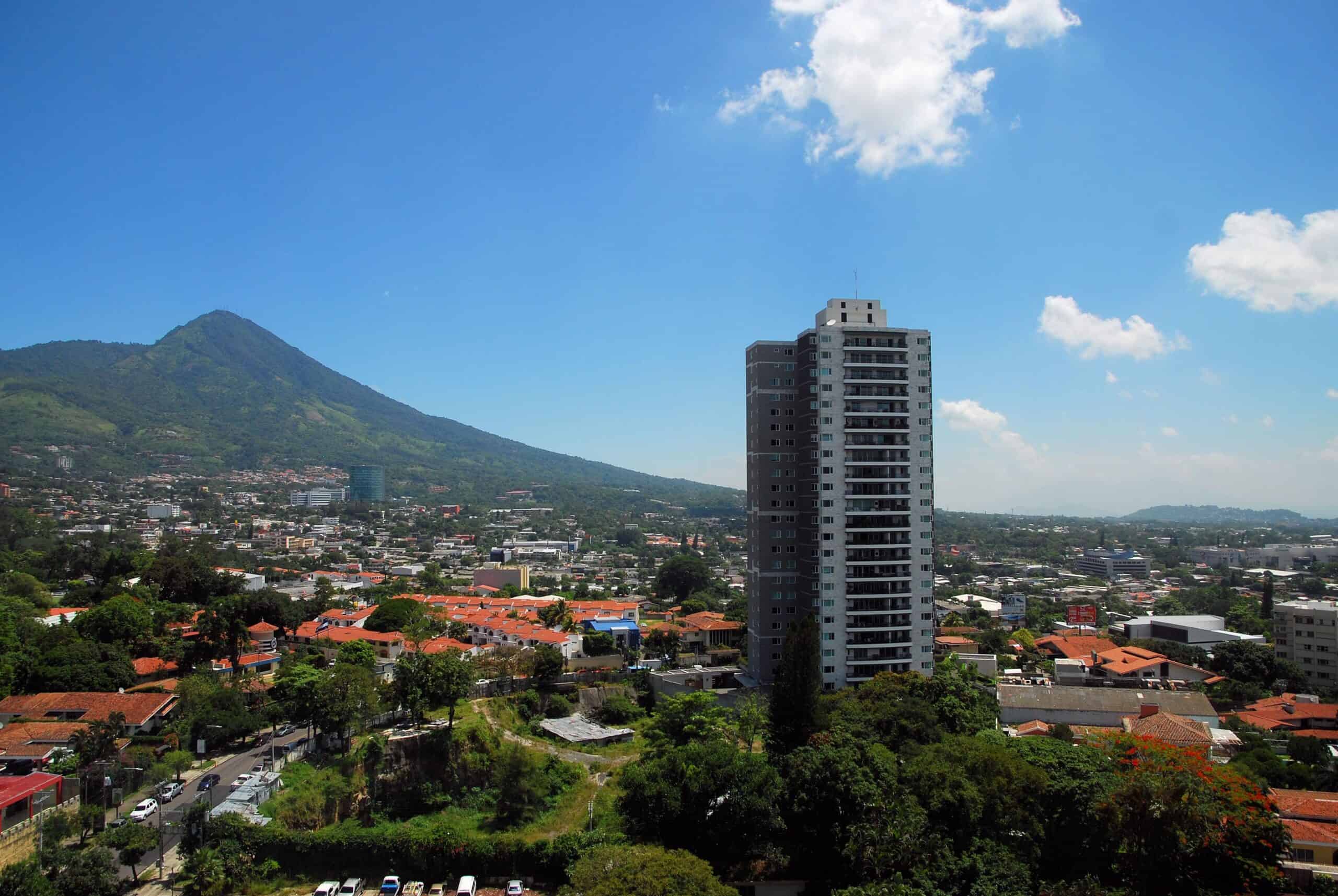
- Incarceration rate: 1,659
- Total prisoners: 109,519
El Salvador has experienced very high crime rates for decades and had the highest murder rate of any country in 2012. It is a hotbed of gang activity with the El Salvador government often working with the gangs instead of trying to eliminate them. In 2022, the government began a crackdown on gang activity by initiating a state of emergency and ordering mass arrests of anyone responsible for any violence. It also increased the maximum prison sentence for gang membership to 45 years and even raised the punishment for talking about gangs or passing gang messages (including journalists who simply talked about the gang activity) to 15 years.
In 2022 alone, 70,000 gang members had been arrested and sent to prisons.
Take Charge of Your Retirement In Just A Few Minutes (Sponsor)
Retirement planning doesn’t have to feel overwhelming. The key is finding expert guidance—and SmartAsset’s made it easier than ever for you to connect with a vetted financial advisor.
Here’s how it works:
- Answer a Few Simple Questions. Tell us a bit about your goals and preferences—it only takes a few minutes!
- Get Matched with Vetted Advisors Our smart tool matches you with up to three pre-screened, vetted advisors who serve your area and are held to a fiduciary standard to act in your best interests. Click here to begin
- Choose Your Fit Review their profiles, schedule an introductory call (or meet in person), and select the advisor who feel is right for you.
Why wait? Start building the retirement you’ve always dreamed of. Click here to get started today!
Thank you for reading! Have some feedback for us?
Contact the 24/7 Wall St. editorial team.
